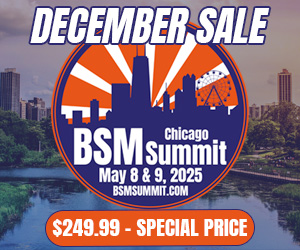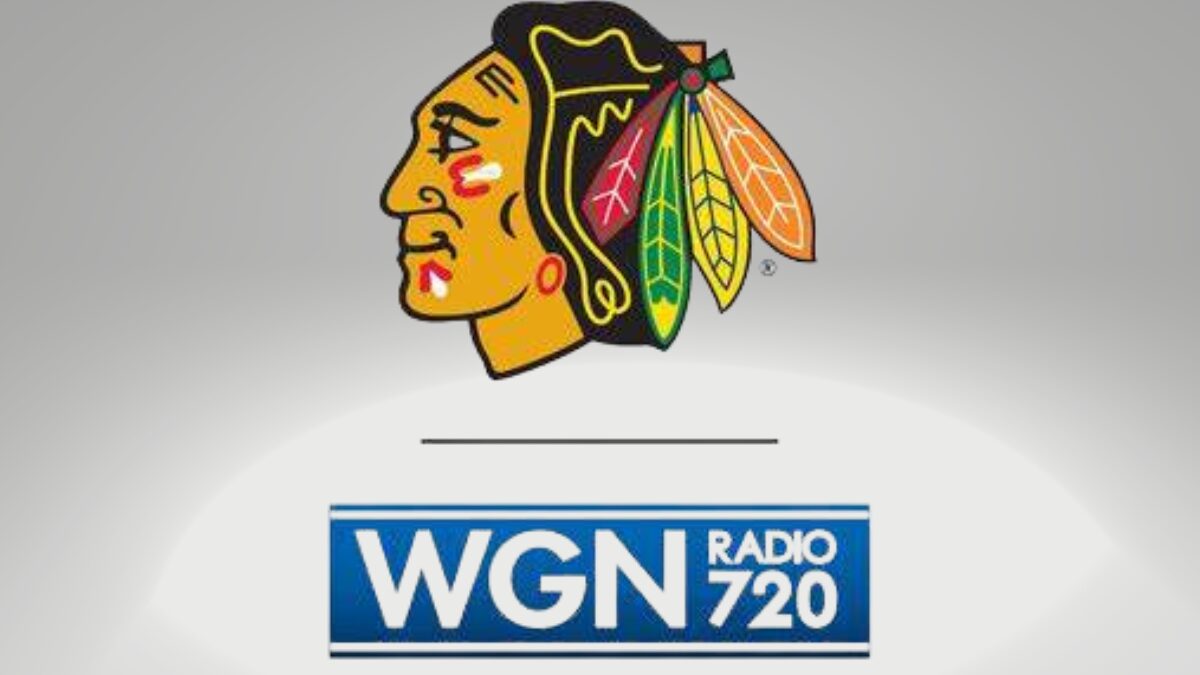Chad Millman doesn’t seem like the type of guy that would ever claim to be a titan in his field. When it comes to gambling-related content though, Millman saw the opportunity and took the leap a long time ago.
Now, he is the chief content officer of Action Network and the co-host of the very popular podcast The Favorites, but back when he was running ESPN The Magazine and ESPN.com, he found unique and interesting ways to use numbers. They may have told gamblers something about an upcoming matchup, but they also added the kind of context even non-gamblers found compelling.
The Chernin Group, which launched Action Network, couldn’t have picked a better time to reach out to Millman. They approached him about their new company in 2017. By the next year, the Supreme Court was considering overturning PASPA. It meant the federal ban on sports betting could be struck down and states would be able to regulate and make laws around sports betting for themselves.
Millman had plenty of conversations about what to expect and all of the information he had said that given the makeup of the court at the time, if the case was going to be heard, the law was likely to be overturned. So, with that, he leapt at the chance to be part of Action Network.
My conversation with Chad for our Meet the Bettors series, presented by Point to Point Marketing, features a lot of conversation about the content strategy for Action Network, which is now owned by Better Collective. We also talk about why the company doesn’t overlook some of its education resources as traffic generators. Enjoy!
Demetri Ravanos: So, I’m going to get to some of the specific content you guys do in a second, but since 2018, sports betting has been spreading across the country a state at a time and now it is in a majority of states. There are still people in that handful of states that are wondering what the status is of when, whether it’s mobile or retail, betting will go live. How much traffic does that map of where sports gambling is legal right now generate for you each month? Because I would imagine it’s a resource a lot of people use.
Chad Millman: Right. New York, Pennsylvania, Illinois, Massachusetts. Those are massive states for audience for us. New Jersey too, of course. But also, California and also Texas and also Florida. And so, you know, you can see how the map is going.
We definitely get spikes when new states come online. It’s an important part of our business model. With North Carolina legalizing last month, we focus a lot on launches in new states and how are we gathering audience there. How are we, making sure that users are aware of the offerings that we have in our app, on our web platform, through our video platforms and our audio platforms? Because that’s a core part of our business.
DR: Are there any states you just mentioned – Texas, California, etc. I mean, I grew up in Alabama. I can’t imagine that state ever going legal. Do you look at any state like that, or from where you sit is legalization on the table everywhere and it’s just a matter of when?
CM: Well, we’re always looking at the next state to go legal, but I think everybody in the sports betting space is looking at California, Texas and Florida, right? Because those will be the tipping points for mass scale that are real opportunities beyond what we’re seeing today. There will be other states that go legal in the coming years. And that’s going to be really important for everybody. But the sort of huge mass events for the industry are going to be those three states.
DR: Speaking of those tipping points, something I’ve noticed working for Jason, I have a different view than your average North Carolinian of the way these books are doing business, and I have noticed that some of that crazy money hose that got turned on in other states has not necessarily been turned on here in North Carolina. I wonder how much of that has to do with some of those places you mentioned New Jersey, New York, Massachusetts, have huge populations. Maybe these books don’t have to spend the way they used to in a state the size of North Carolina when they launch for the first time. Has getting New York and other major population states online changed what you’ve seen in the way the books behave when they launch in a new state?
CM: I don’t know that it’s so much tied to other states having launched as how operators are choosing to run their businesses. When so many states were coming on, in say the first three years after legalization, even the first four years after legalization, it was a market grab. Every book was trying to get as many customers as possible in every state in order to grow their market share locally and nationally.
What has happened in the past couple of years is places like FanDuel and DraftKings have solidified themselves as the market leaders. There’s also pressures from the public markets regarding how these operators conduct their businesses and getting to profitability. They’re focused on how they are growing market share in a way that also allows them to get to being profitable businesses.
You know, you’ve seen contraction as well. Other operators have walked away because the barriers to entry are so high in terms of acquiring customers that it proves to be a real challenge. So, I think all the operators are being really strategic about how they spend a new space.
DR: You guys had Darren Rovell. You have Brett McMurphy. As a college football fanatic, Action Network is where I get most of my news from because I respect and trust Brett so much. How much did those types of names joining the site sort of change the perception of what Action Network is?
CM: It’s super important. They bring credibility, right? They’re either coming from big places, like Darren when he joined us in 2018. He was with us until the end of last year. Then there’s someone like Brett, who, as you mentioned, is one of the most respected reporters in his space.
It widens the funnel of our audience. It makes people look at us in a little bit of a different light and extends the brand. So, people are coming to us for information and breaking news, and then customers all of a sudden are aware of what Action Network is, beyond just thinking about, “okay, who am I going to bet on tonight?”
DR: Let’s talk about when you look at hiring an insider, like Brett, or let’s say it expands into other sports as well. You know, if you work in this business, I think everybody knows or at least knows the reputation of which insiders have what relationships with various agencies or other entities off the field. Is that something, given what Action Network’s business is, that you have to have a little bit more scrutiny on?
CM: Oh, it honestly has never come up. Maybe it’s sort of something that we think about subconsciously, but the people that we’ve hired over the years to do these things, they have pretty good reputations.
I think almost by default, we’re only going after the people that we think can operate independently that are going to break news regardless of relationships, that are going to be smart about maintaining relationships and sourcing. That’s an important part of being an insider, but I don’t know that we’ve ever had a specific conversation about that because, reputationally the people we’ve gone off after, that hasn’t been an issue.
DR: As sports betting content makes its way onto linear networks’ pregame shows, they are trying to figure out the way to make gambling information palatable for people that will never place a bet. Is that something that Action Network has to think about at all? Is there any sort of strategy for convincing the more casual fan to see the site as just another sports site?
CM: You’ve got to think about it every day. It’s increasingly competitive. More and more places are trying to figure out how to do sports betting content that reaches the masses, how to incorporate it in the right way, and we’re no different, right?
We’re not going to grow in the way that we want to grow if we’re only thinking about the hardcore bettor that we were serving in 2018. When we launched, it was as a subscription site with all of our content behind the paywall. You have to evolve.
DR: So with you as the chief content officer then, how much are you thinking about how you balance the educated versus the non-educated audience? How much use does something like your betting education guide get each month?
CM: I think about growing our audience every single day and the ways in which we can get there is through different types of stories that we traffic well in Google. Is it true breaking news and information? Is it bettor education guides? Is it through getting people into our app?
Our audiences on YouTube and to our podcasts grew incredibly fast last year. So how are we reaching audiences in the places where they’re going to search for this information? People are going to YouTube as often as they’re going to Google if they want to learn how to do that.
So, I’m thinking about that person in North Carolina who’s all of a sudden seeing billboards for legal betting in their state, and maybe they never thought about it before. If they go to search how to bet on whatever platform they decide to do it, how are we giving them the content they need to be comfortable making decisions?
DR: We are seeing these titans of sports content rethink how they deliver what they are making to their audience. You guys have the shows on YouTube. You have the podcasts, including your own, The Favorites. You have written content. When does Action Network start to think about could live games ever be a part of this company’s future?
CM: Live is core to who we are right now, meaning our greatest value proposition is delivering users information that helps them make a decision about a play that they want to make in the upcoming window. Our audience always spikes before games, our audience spikes in the windows on Sundays. Audience spikes on Thursday nights, Saturday mornings, and that’s no matter the platform. So, we know the importance of live.
Are we going to be in a place to start making massive offers on the NBA or the NFL? I don’t see that happening anytime soon. But experimenting with smaller opportunities? I don’t see why we wouldn’t think about that if we think there are audiences we can gather in times when there might not be a major sport that is about to kick off, tip off, first pitch, whatever. If we’re serving audiences betting information on an event on our platform, it would make sense.
To learn more about Point-To-Point Marketing’s Podcast and Broadcast Audience Development Marketing strategies, contact Tim Bronsil at tim@ptpmarketing.com or 513-702-5072.

Demetri Ravanos is a columnist and features writer for Barrett Media. He is also the creator of The Sports Podcast Festival, and a previous host on the Chewing Clock and Media Noise podcasts. He occasionally fills in on stations across the Carolinas in addition to hosting Panthers and College Football podcasts. His radio resume includes stops at WAVH and WZEW in Mobile, AL, WBPT in Birmingham, AL and WBBB, WPTK and WDNC in Raleigh, NC.
You can find him on Twitter @DemetriRavanos or reach him by email at DemetriTheGreek@gmail.com.





